Curious about what it’s like to drive in Azerbaijan? The U.S. State Department, which advises Americans on the dangers they’ll face abroad, can tell you: “Driving in Baku should be considered extremely hazardous. Outside the city, even where roads are present, conditions are similar. Roads are often in poor repair, unlit, and lack lane markings, traffic signs, and warnings. Many rural roads are largely unpaved.” To be fair, the U.S. State Department could make Luxembourg in 2021 sound like Baghdad in 2003. Still, I couldn’t help but wonder, how much of it was true?
This was what was on my mind when a couple from our school invited us to join them on an excursion to Lahij (pronounced la-HEZH), a small village three hours from Baku in the foothills of the Caucasus Mountains. The destination interested me, but even more exciting was the prospect of seeing the land in between. Since early January we’d barely left our immediate neighborhood in Baku and I wanted to know what was out there in the great, Azerbaijani unknown.
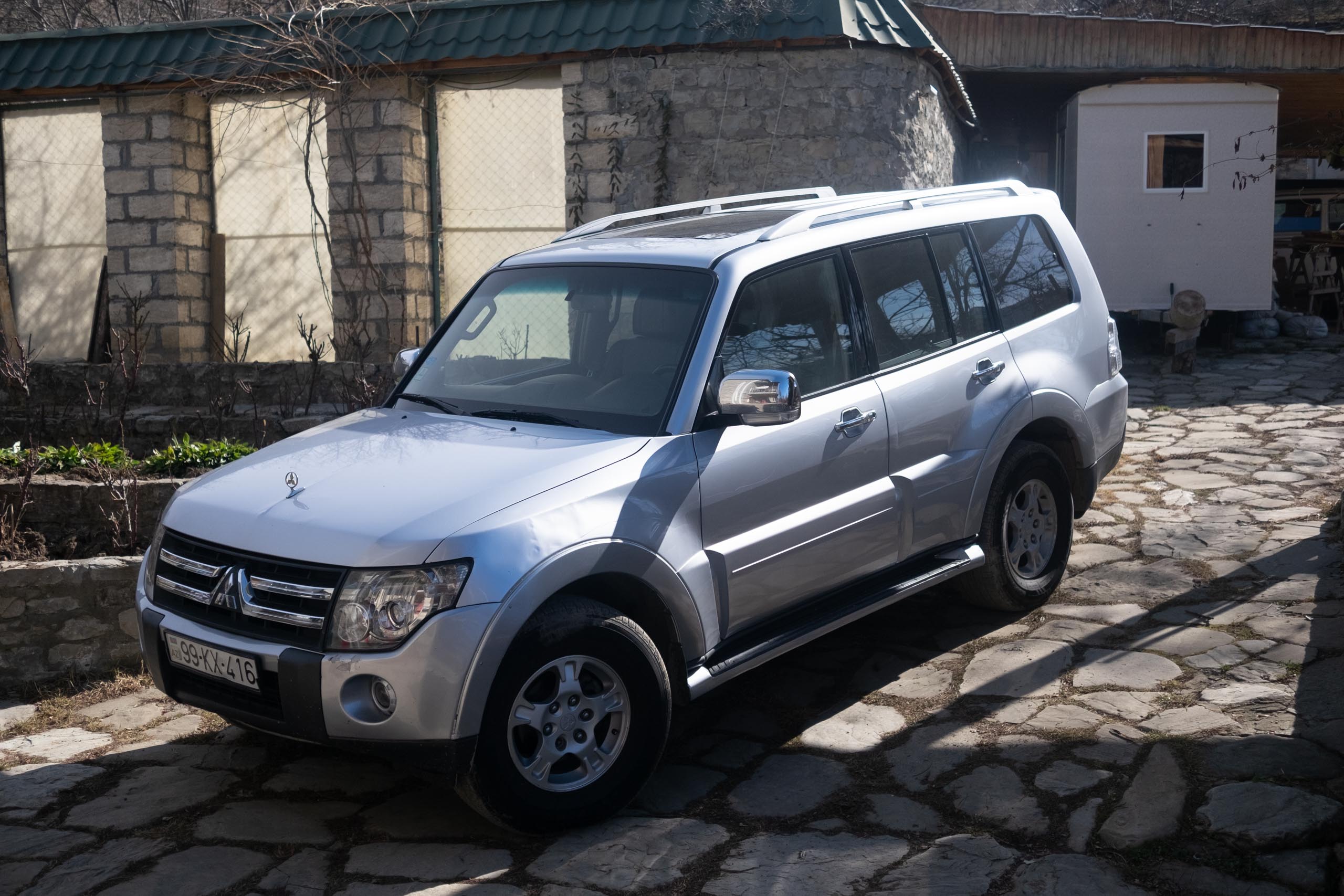 The Mitsubishi Pajero we rented for the trip.
The Mitsubishi Pajero we rented for the trip.
Once the day of our departure arrived, Rachael, Idara, Oren, and I followed our friends on the highway out of Baku. Whenever the traffic slowed, cars and dump trucks squeezed us in on all sides. I tried to keep our rented Pajero from scraping the other cars around us while Rachael called out the location of our leaders just up the road.
Everything around us was brown and dusty. The high-tension power lines above and the small, jumbled, concrete buildings below made me feel like we were in some post-apocalyptic future where it hadn’t rained for years, nothing grew, and electricity was only available to a very rich minority who lived far away from places like this.
Eventually, though, we reached some sort of urban growth boundary, either real or imagined, and everything around us emptied. The buildings were gone, and the cars, and the dust, and the power lines. What few trees remained disappeared as well, and we were left on an empty highway surrounded by rolling hills covered in a sparse, dark green stubble.
As our drive continued we saw sheep and skinny cattle, usually accompanied by a man on a horse, and sometimes with sheepdogs, too. The trees returned, too, but they were squat, sparse, and windblown – nothing like the towering Douglas firs we’d left behind in Oregon. Off in the distance we could begin to make out the Caucasus themselves, with summits much higher than our native Cascades. And while the peaks were white, the surrounding hills had already given up their winter blanket of snow.
We passed billboards featuring soldiers, tanks, and jets behind the phrase ‘Qələbə bizimdir!’ (victory is ours), and others which read ‘Qarabağ Azərbaycandır!’ (Karabakh is Azerbaijan) in front of the Azerbaijani flag. Both were a nod to Azerbaijan’s victory in the war last fall.
The quality of the road steadily decreased as we drove west toward our destination. Now only a few miles away, we stopped at a collection of roadside ovens where women were baking giant flatbreads which resembled a stiff, oversized pita, sprinkled with black sesame seeds. I fished one manat (about 60 cents) out of my pocket and handed it to one of the women who handed me back one of the giant loaves. Though crispy and cool on the outside it was still warm and moist on the inside. Rachael and I took turns tearing off pieces for ourselves and handing them back to Oren and Idara.
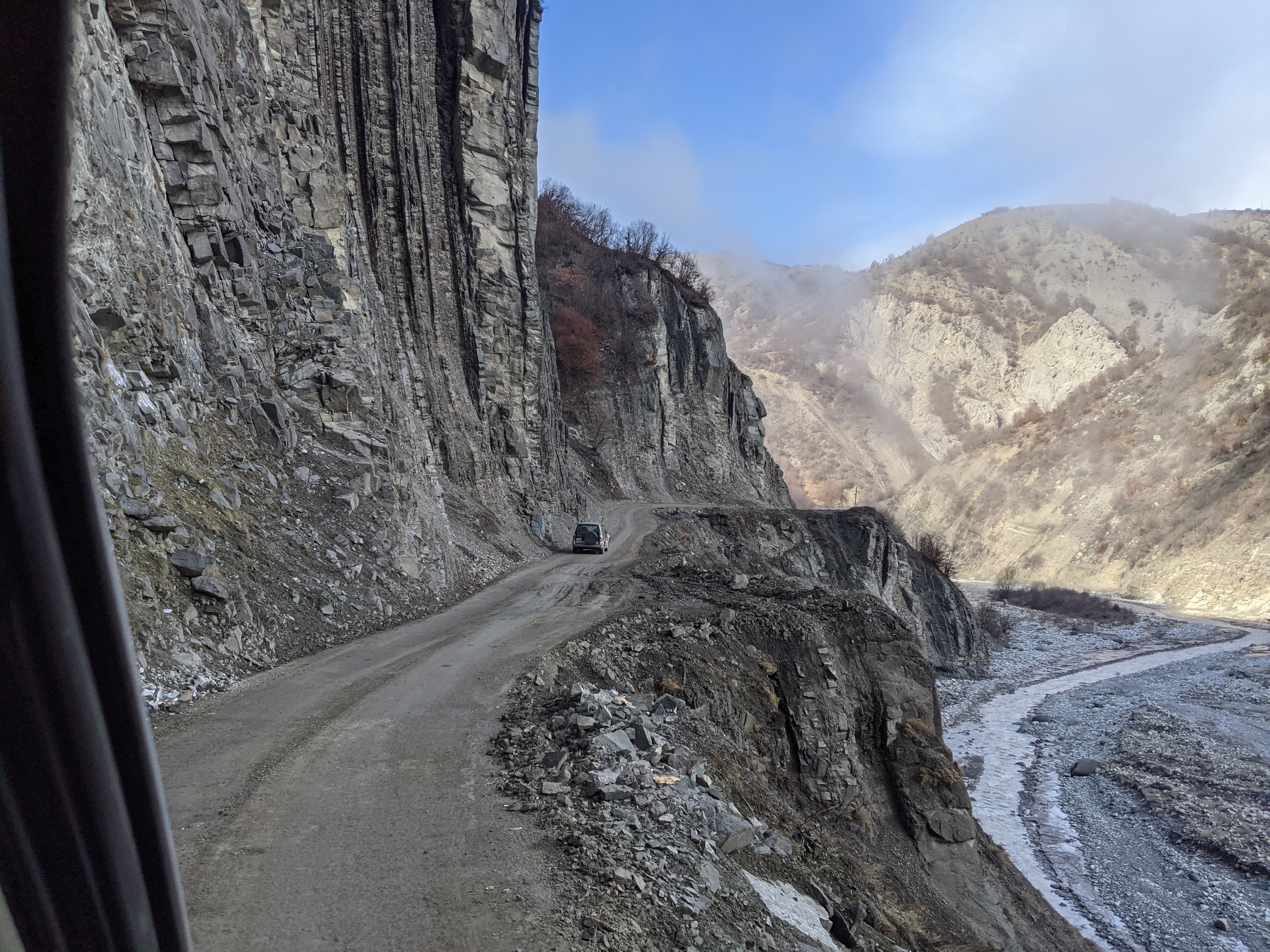 This was the final stretch of the road north into Lahij. Rachael took this photo out of the car window on our way back south.
This was the final stretch of the road north into Lahij. Rachael took this photo out of the car window on our way back south.
The final leg into Lahij snaked along a riverbed strewn with giant rocks and whitish brown river melt. The road itself looked like it slid into the riverbed every few months or so. Perhaps it was been paved in parts, but the combination of rockfall from the towering cliffs above and slides from below made it difficult to tell.
In a few spots the road narrowed to a single car width, and as I looked out my window I could see where the shoulder was already crumbling down into the valley below. I noticed myself pulling my seatbelt strap tighter across my chest.
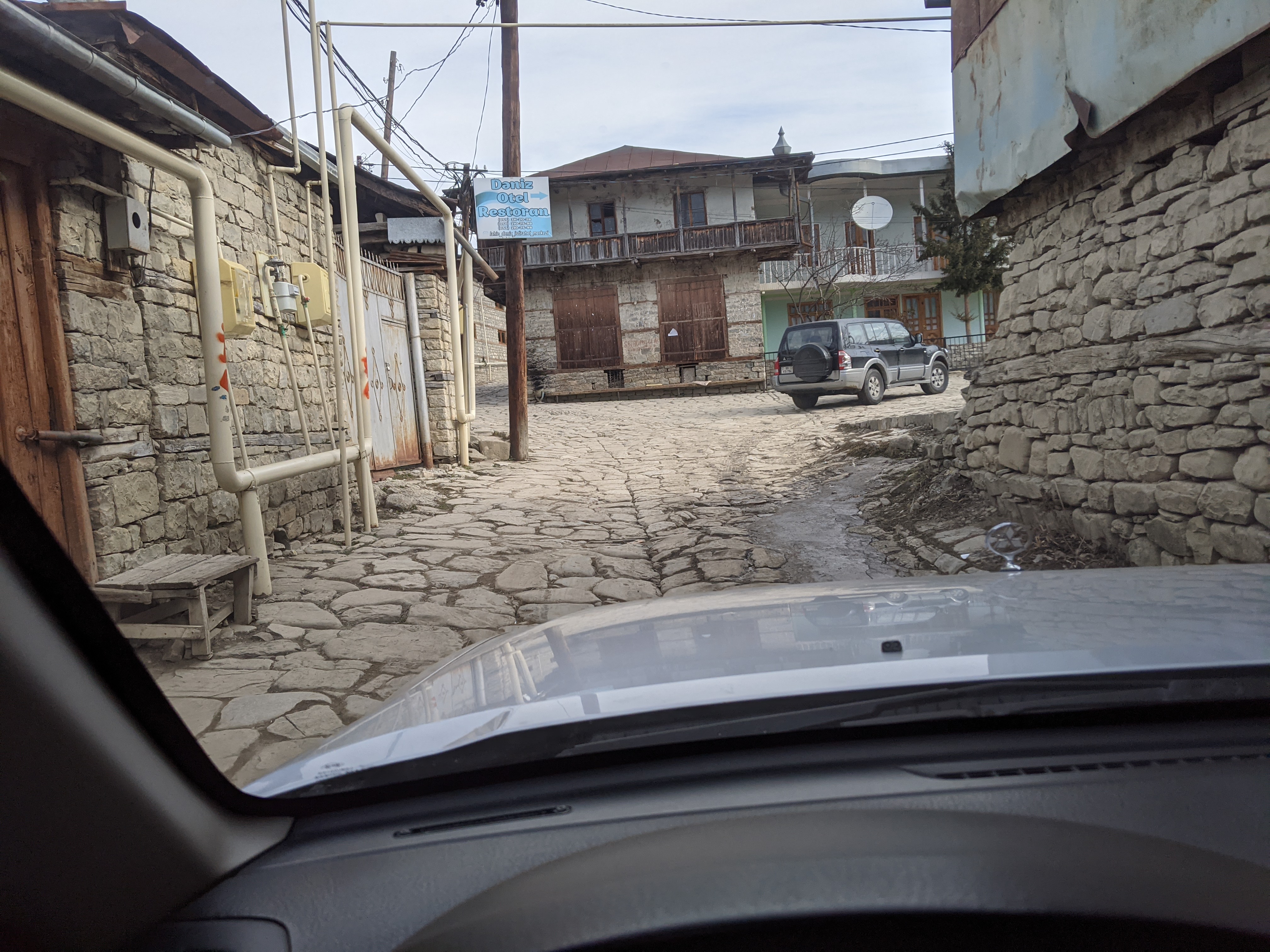 The cobblestone streets of Lahij.
The cobblestone streets of Lahij.
Eventually the road widened again, and we were on Lahij’s doorstep. We made our way into the village itself, driving between its small stone buildings. The road was now paved in roughly hewn cobblestone, and I could imagine a donkeys and horses ambling up its path.
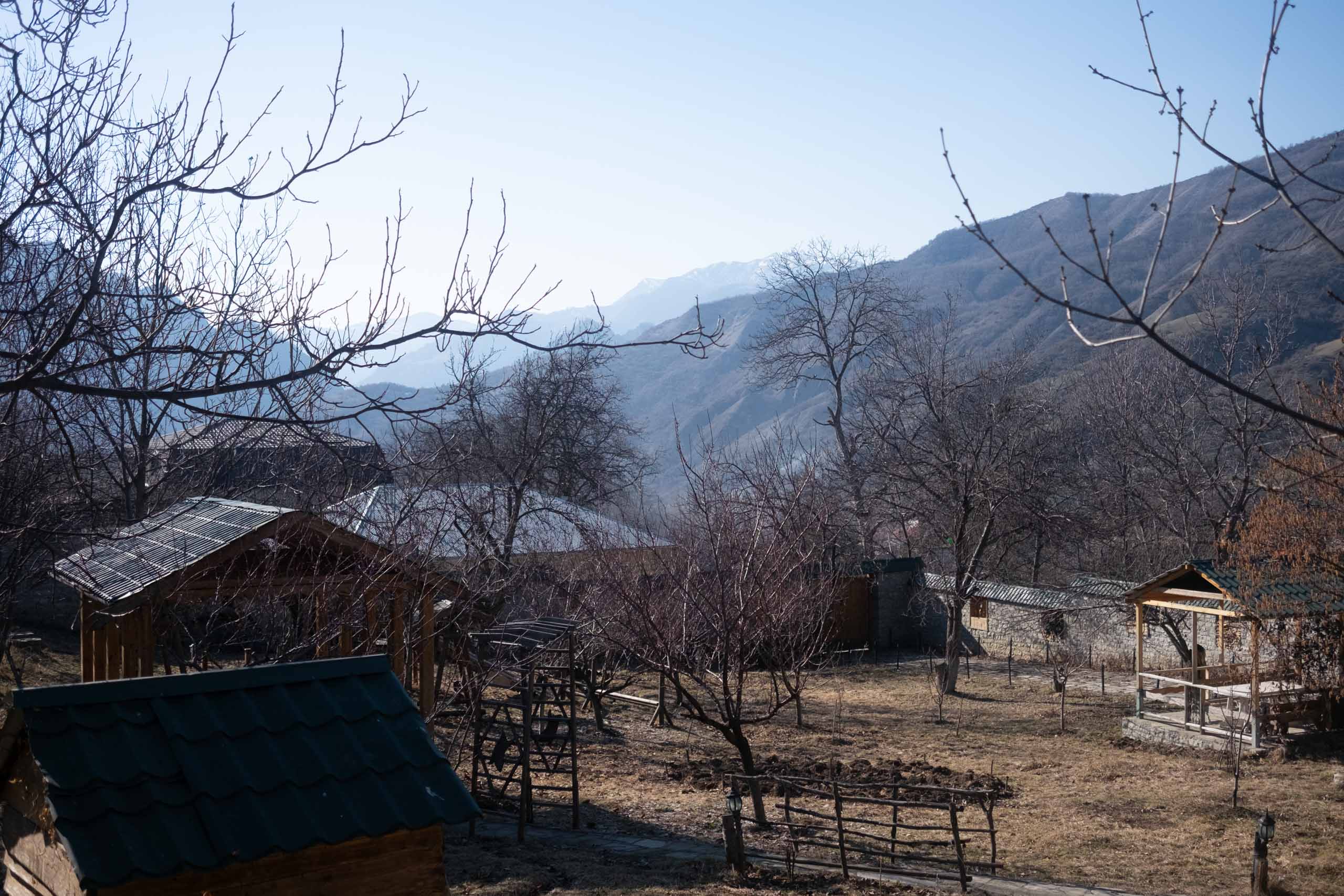 The view from the guesthouse where we stayed.
The view from the guesthouse where we stayed.
The journey there now behind us, we knocked on the door of our guesthouse and introduced ourselves to the owner, Rustem. Keen on trying out my baby Azerbaijani, despite the fact that Rachael and our new friends were watching, I said, “Tanışlığımıza şadam.”1 To which he responded, in spotless English with only the faintest accent, “What language are you speaking?”
My pride deflated, I said that I told him that I was trying to say “Nice to meet you.”
“Just say ‘Çox adam,’” he said. “Much easier.”
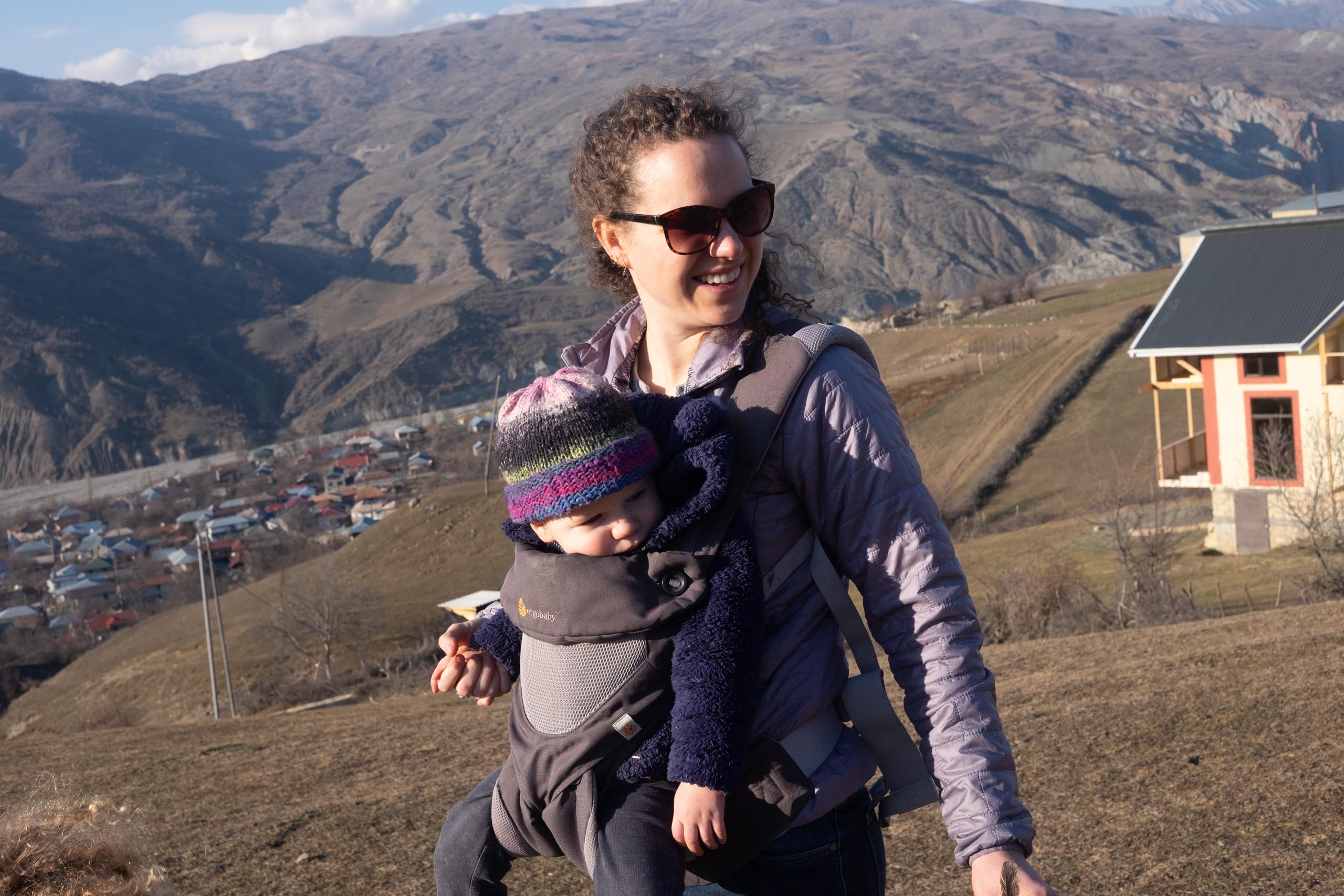 On Saturday afternoon we took a walk through the hills overlooking the village. The snow had recently melted and not much grass had begun to grow.
On Saturday afternoon we took a walk through the hills overlooking the village. The snow had recently melted and not much grass had begun to grow.
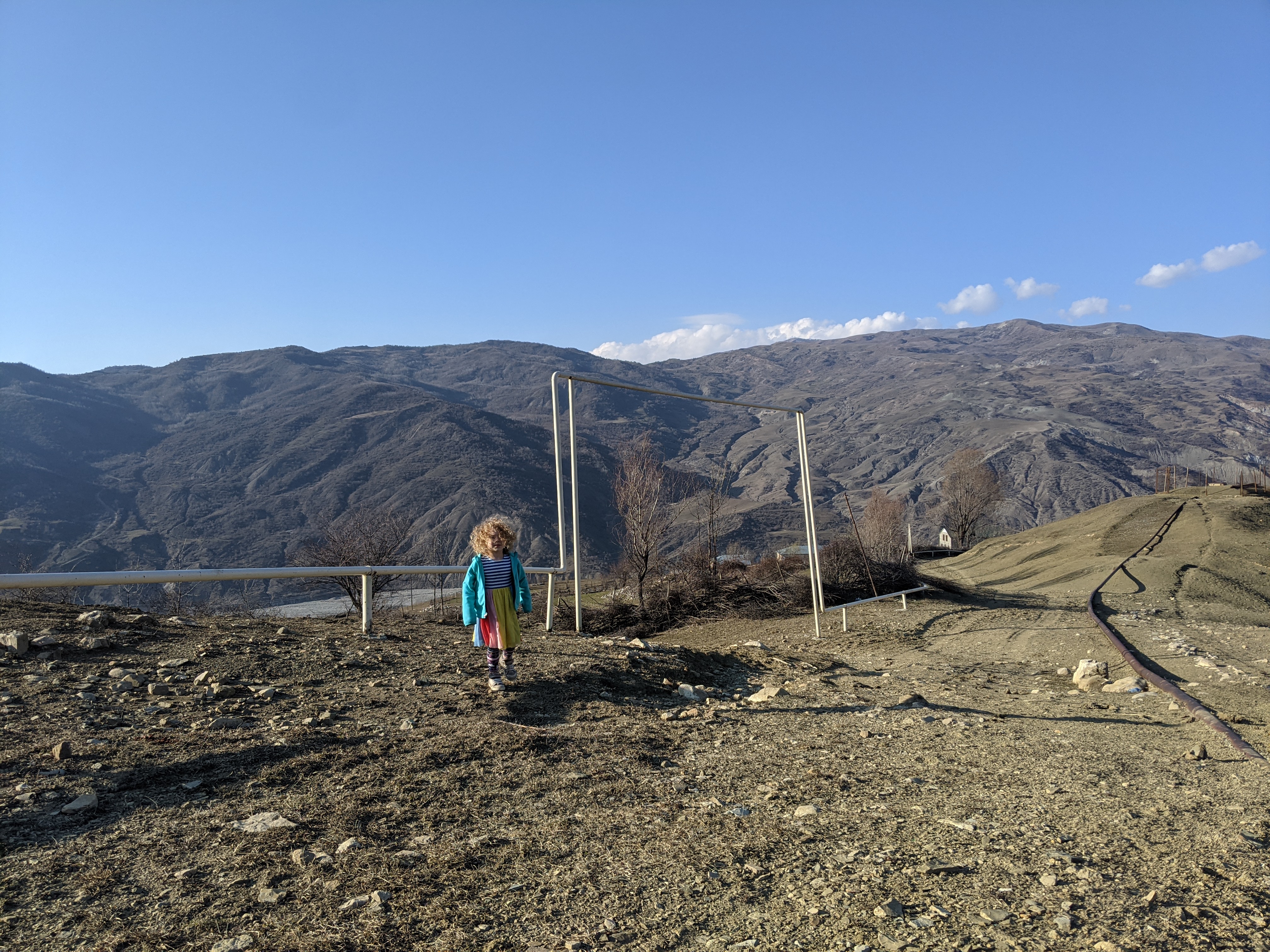 When natural gas lines were installed in the town a few years ago, they laid them above ground, even bending them up and over roads and driveways. We see this around our neighborhood, too. I assume they’ve done it this way because it’s cheaper or easier than putting them in the ground, though it does make you wonder what happens when someone crashes into it.
When natural gas lines were installed in the town a few years ago, they laid them above ground, even bending them up and over roads and driveways. We see this around our neighborhood, too. I assume they’ve done it this way because it’s cheaper or easier than putting them in the ground, though it does make you wonder what happens when someone crashes into it.
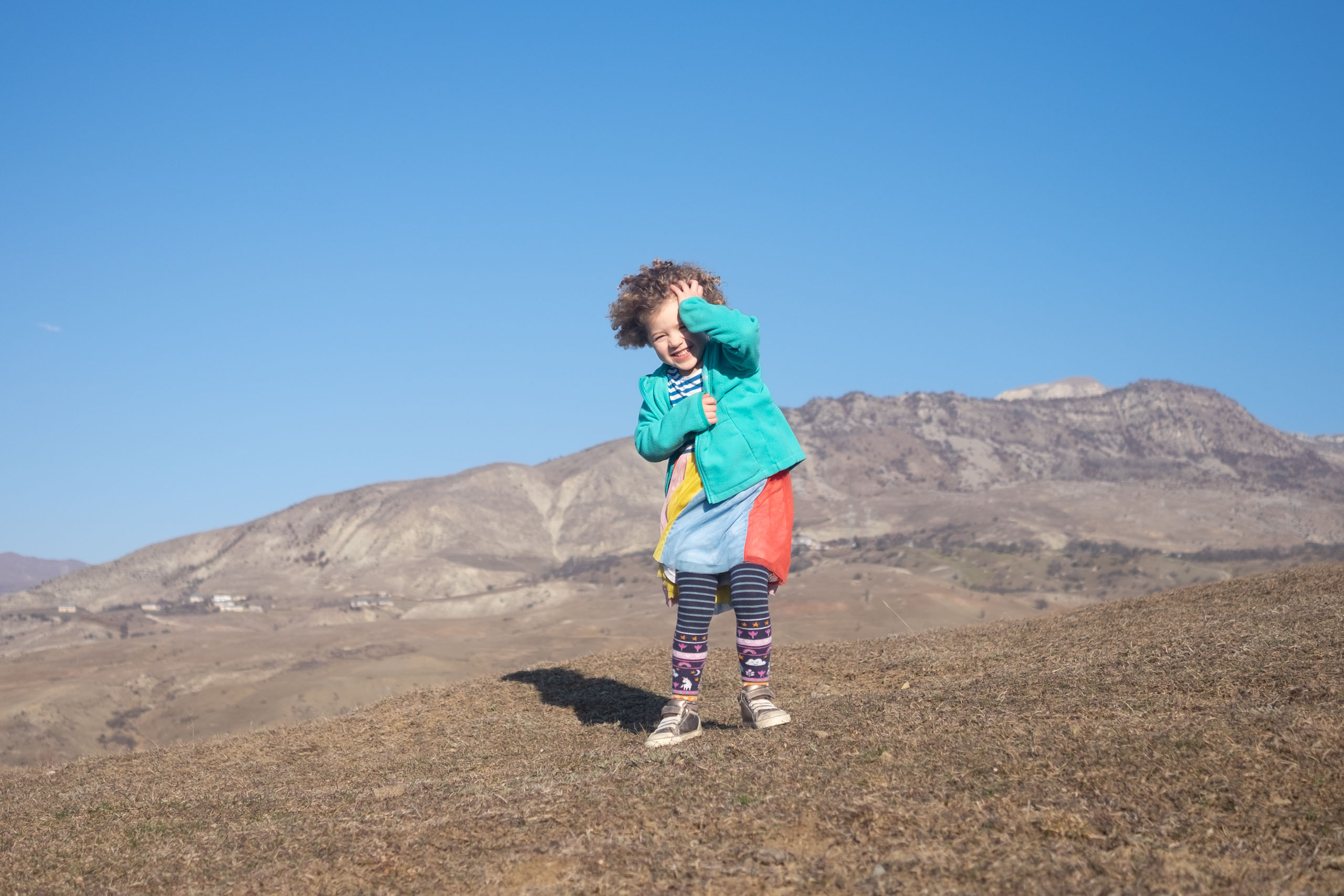 Idara shielding herself from the wind.
Idara shielding herself from the wind.
We walked up into the hills overlooking the village on Saturday afternoon and on Sunday morning we walked through the rough, narrow streets of the village. Most shops were closed till the spring, but we did find a coppersmith, a teahouse, and a business which would dress you up in traditional Azeri clothing for a few manat so that you could take a picture with your phone. I found myself more intrigued with the chickens, turkeys, and cats we found wandering the village alongside us.
In the end, we only spent about 24 hours in Lahij. On Sunday afternoon we made the return trip back to Baku, this time through heavy fog. We arrived back in Baku unscathed, with a better idea of what lay beyond our immediate horizons, and a stronger desire than ever to explore it.
-
Later on I confirmed with another Azeri speaker that these are in fact words in Azerbaijani. “It does mean ‘nice to meet you,’” she said. “But it also makes you sound like you’ve just been introduced to the Queen.” ↩